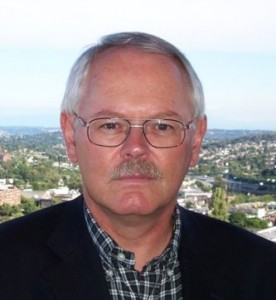More than 50 years ago, Philip Rieff wrote a book entitled “The Triumph of the Therapeutic.” In it, he argued that widespread reliance upon private therapy today arose in the secularized world largely because community has broken down.
In societies where there are strong families and strong communities, he contends, there is less need for private therapy. People can more easily work out their problems through and within the community.
If Rieff is right, and I suggest he is, then it follows that the solution to many of the things that drive us to the therapeutic couch today lie as much, and perhaps more, in a fuller and healthier participation within public life, including ecclesial life, than in private therapy. We need, as Parker Palmer suggests, the therapy of a public life.
What is meant by this? How can public life help heal us?
In caption: public life (life within community, beyond our private intimacies) becomes therapeutic by immersing our fragility into a social network which can help carry our sanity, give us a certain rhythm within which to walk, and link us to resources beyond the poverty of our private helplessness.
To participate healthily in other people’s lives links our lives to something bigger than ourselves and this is its own therapy because most public life has a certain rhythm and regularity to it that helps calm the chaotic whirl of our private lives which are often racked with disorientation, depression, psychological fragility, paranoia and a variety of obsessions.
Participation in public life gives us clearly defined things to do: regular stopping places, regular events of structure, a steadiness, a rhythm. These are commodities the psychiatric couch does not provide. Public life links us to resources that can empower us beyond our own helplessness. What we dream alone remains a dream. What we dream with others can become a reality.
But all this is rather abstract. Let me try to illustrate with an example. While doing doctoral studies in Belgium, I was privileged to attend the lectures of Antoine Vergote, a renowned doctor of both psychology and the soul. I asked him one day how one should handle emotional obsessions, both within oneself and when trying to help others. His answer surprised me. He said something to this effect:
“The temptation you might have as a priest is to simplistically follow the religious edict: ‘Take your troubles to the chapel! Pray it all through. God will help you.’ It’s not that this is wrong. God and prayer can and do help. But most paralyzing obsessional problems are ultimately problems of over-concentration . . . and over-concentration is broken mainly by getting outside of yourself, outside of your own mind and heart, life and room. Have the emotionally paralyzed person get involved in public things—social gatherings, entertainment, politics, work, church. Get the person outside of his or her closed world and into public life!”
He went on, of course, to qualify this so that it differs considerably from any simplistic temptation to simply bury oneself in distractions and work. His advice here is not that one should run away from doing painful inner work, but rather that doing one’s inner work is sometimes very dependent upon outside relationships. Sometimes only a community can stabilize your sanity.
As a corollary to this, I offer this example: I have been teaching theology in a number of colleges for more than 40 years. Many is the emotionally unstable student, fraught with every kind of inner pain and unsteadiness, who shows up at these colleges, hangs around its classrooms, cafeteria, chapel and social areas, and slowly gets steadier and stronger emotionally. And that strength and steadiness come not so much from the theology courses, but from the rhythm and health of the community life. These students get better not so much by what they learn in the classrooms as they do by participating in the life outside of them. The therapy of a public life helps heal them.
Further, for us as Christians, the therapy of public life also means the therapy of an ecclesial life. We become emotionally healthier, steadier, less obsessed, less a slave of our own restlessness, and more able to become who and what we want to be by participating healthily within the public life of the church.
Monks, with their monastic rhythm, have long understood this and have secrets worth knowing: Program, rhythm, public participation, the demand to show up, and the discipline of the monastic bell have kept many a man or woman sane — and relatively happy besides.
Regular Eucharist, regular prayer with others, regular meetings with others to share faith, and regular duties and responsibilities within ministry not only deeply nurture our spiritual lives, they also help keep us sane and steady.
Robert Lax, who greatly influenced Thomas Merton, suggests that our task in life is not so much finding a path in the woods as of finding a rhythm to walk in. Public life can help us find that rhythm.
Oblate Fr. Ron Rolheiser is a theologian, teacher, and award-winning author. He can be contacted at www.ronrolheiser.com.

Oblate Fr. Ron Rolheiser
